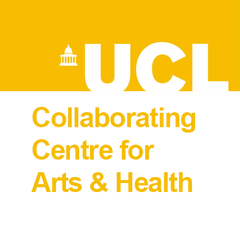Publications
Research Report
What is the evidence on the role of the arts in improving health and well-being? A scoping review
The 2019 scoping review What Is The Evidence on the Role of the Arts in Improving Health? was published in response to two decades of significantly increased research into the effects of the arts on health and wellbeing. As a result of this major uptake in interest, there has been a noticeable surge in practices and policy activity across the WHO European Region and beyond. This foundational report was a catalyst for the creation of the Jameel Arts & Health Lab.
Scope
The report synthesized results from over 3000 studies that identified a vital role for the arts in the prevention of ill health, promotion of health, and management and treatment of illness in a variety of cultural contexts, health and care spaces, and across the lifespan.
Evidence from a wide range of methodologies was analysed, including from case studies, small-scale surveys, community-wide ethnographies, and controlled trials from diverse disciplines. The report was designed to cast a wide net, capturing large analyses and smaller enquiries, providing an expansive view of the type of research being initiated in the field of arts and health.
Results from the review were grouped under two broad themes:
1. Prevention and promotion
Findings show that the arts can affect social determinants of health including poverty and unequal access to education and healthcare. The arts can support child development and caregiving, encourage health-promoting behaviours, and help to prevent ill health.
2. Management and treatment
Findings showed that the arts can help people experiencing mental illness, support care for people with neurodevelopmental, neurological disorders, and acute conditions. The arts can help with the management of noncommunicable diseases, and support end-of-life care.
The project launched in October 2018 and concluded in November 2019.
Insights and Deliverables
Findings from the WHO 2019 report suggest that engaging in the arts constitutes multi-modal, low-cost interventions that could contribute to core determinants of health, play a critical role in health promotion, and help to prevent the onset of mental illness and age-related physical decline. The arts were found to be particularly advantageous for complex health issues, and for determining, advocating for, and addressing health issues within the communities that are most impacted by them.
Recommendations from the report included:
1. Further research on health areas and art forms where there is currently limited evidence
2. Economic evaluations and comparative studies
3. The scaling of well-evidenced arts interventions in regional, national, and international contexts
Finally, the report recommended a number of policy considerations to support the arts and health field. These include:
1. Recognizing and acting on available evidence on the health benefits of the arts
2. Acknowledging the health value of making the arts accessible to a variety of populations, especially traditionally disadvantaged groups,
3. Supporting the development of strategies for increased collaboration between the culture, health, and social care sectors at both hyperlocal and global levels.
Project Team
Led by Daisy Fancourt (JAHL, UCL) and Saoirse Finn (UCL), the research was completed as part of a collaboration between the WHO Collaborating Centre for Arts & Health based in the Social Biobehavioural Research Group at University College London and the WHO Regional Office for Europe.
Support for the WHO 2019 Report was provided by the Wellcome Trust.
Categories
Research Team

Daisy Fancourt
Lead Researcher, University College London

Saoirse Finn
Lead Researcher, University College London

Research Project
Music and Motherhood
A project exploring cultural considerations for arts and health interventions. In particular, using group singing for postpartum depression, which has been successful in the UK, in new contexts in Denmark, Italy, and Romania.
Lead Researchers
K Warran, C Smith
Lead institutions
UCL, WHO Europe
Status
Completed
Type
Implementation study

Research Project
Hospital Murals Evaluation (HoME)
The largest study of its kind, aiming to better understand the impact of murals in hospitals on patients, staff, and visitors, and to study murals across different cultural contexts in Nigeria, Slovenia, the UK, and the US.
Lead researchers
M Foster, N Sajnani
Lead institutions
NYU Steinhardt
Status
In progress
Type
Evaluation




